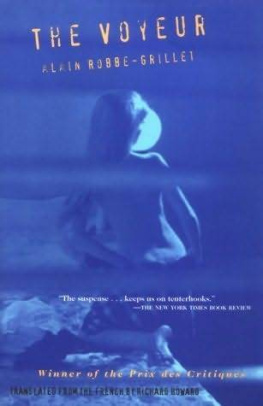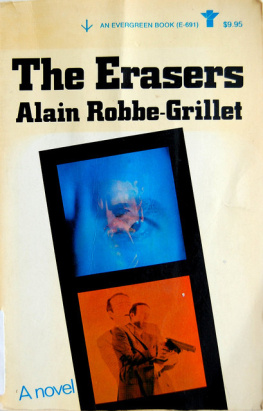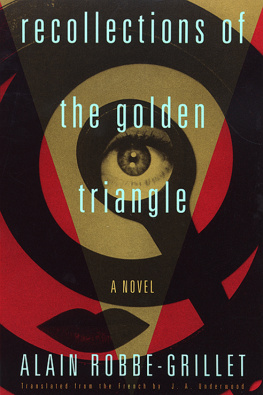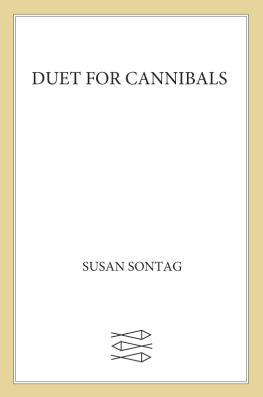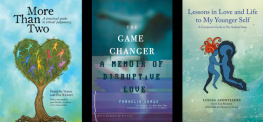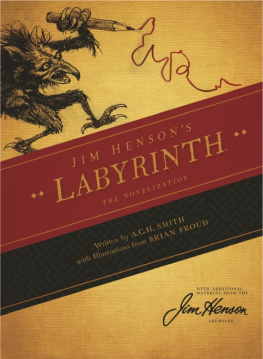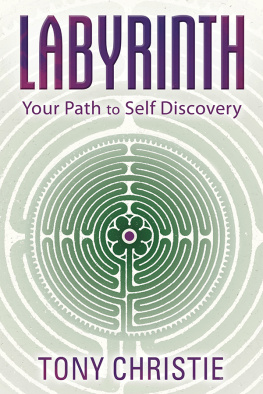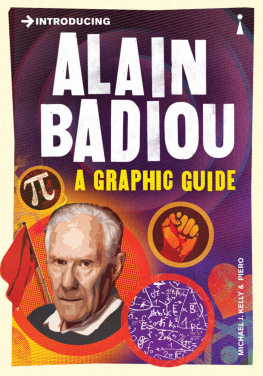Alain Robbe-Grillet - Jealousy; In the Labyrinth - Two Novels
Here you can read online Alain Robbe-Grillet - Jealousy; In the Labyrinth - Two Novels full text of the book (entire story) in english for free. Download pdf and epub, get meaning, cover and reviews about this ebook. year: 1960, genre: Detective and thriller. Description of the work, (preface) as well as reviews are available. Best literature library LitArk.com created for fans of good reading and offers a wide selection of genres:
Romance novel
Science fiction
Adventure
Detective
Science
History
Home and family
Prose
Art
Politics
Computer
Non-fiction
Religion
Business
Children
Humor
Choose a favorite category and find really read worthwhile books. Enjoy immersion in the world of imagination, feel the emotions of the characters or learn something new for yourself, make an fascinating discovery.

- Book:Jealousy; In the Labyrinth - Two Novels
- Author:
- Genre:
- Year:1960
- Rating:3 / 5
- Favourites:Add to favourites
- Your mark:
- 60
- 1
- 2
- 3
- 4
- 5
Jealousy; In the Labyrinth - Two Novels: summary, description and annotation
We offer to read an annotation, description, summary or preface (depends on what the author of the book "Jealousy; In the Labyrinth - Two Novels" wrote himself). If you haven't found the necessary information about the book — write in the comments, we will try to find it.
Jealousy; In the Labyrinth - Two Novels — read online for free the complete book (whole text) full work
Below is the text of the book, divided by pages. System saving the place of the last page read, allows you to conveniently read the book "Jealousy; In the Labyrinth - Two Novels" online for free, without having to search again every time where you left off. Put a bookmark, and you can go to the page where you finished reading at any time.
Font size:
Interval:
Bookmark:
Two Novels by Robbe-Grillet
Jealousy
& In the Labyrinth
Translated by Richard Howard
GROVE PRESS, INC. NEW
Copyright 1965 by Grove Press, Inc. Jealousy copyright 1959 by Grove Press, Inc. Originally published in 1957 by LesEditionsde Minuit, Paris, France, as La Jalousie.
In the Labyrinth copyright 1960 by Grove Press, Inc. Originally published in 1959 by LesEditionsde Minuit, Paris, France, as Dans le labyrinthe.
All Rights Reserved
Library of Congress Catalog Card Number: 65-16711
acknowledgments: The essay by Bruce Morrissette is a revised adaptation of an article which appeared originally in The French Review, Vol. XXXI, no. 5 (April 1958) under the title "Surfacesetstructuresdans les romans de Robbe-Grillet," and is printed with the author's permission. Roland Barthe's essay appeared originally in Critique, nos. 86-87 (juillet-aot 1954) under the title "Littratureobjective: AlainRobbe - Grilletand was subsequently translated in Evergreen Review, No. 5 (Summer 1958). It is reprinted with the author's permission. Mme. Anne Minor's review of Jealousy originally appeared in The French Review, Vol. XXXII (April 1959) under the title "La Jalousie," and is printed with the author's permission.
First Evergreen Black Cat Edition 1965 Fifth Printing
CONTENTS
JEALOUSY
IN THE LABYRINTH
SURFACES AND STRUCTURES IN ROBBE-GRILLET'S NOVELS
by Bruce Morrissette
The rising curve of Alain Robbe-Grillet's literary star continues its dazzling ascent. As early as 1953, when Robbe-Grillet launched his career with The Erasers(Les Gommes), Roland Barthes saw in the young author's work a revolutionary aspect comparable to that of the "surrealist attack on rationality." His second novel, The Voyeur(LeVoyeur, 1955), amazed the critics, won an important literary prize, and gained the attention of the literary public. Robbe-Grillet thereupon began to reveal his talents as a theorist of the novel form, publishing a series of articles in L'Express and two remarkable essays, "A Fresh Start for Fiction" (Evergreen Review, No. 3) and "Old 'Values' and the New Novel" (Evergreen Review, No. 9) which led to his being designated widely as the leader of the "school" of the New Novel in France. It is thus that Jean-Louis Curtis depicts him in la recherche du temps posthume. This witty book describes Marcel Proust's return to earth to conduct an inquiry into the state of modern literature. In the milieu where the master of the psychological novel had expected to hear discussions of Henry James and his disciples, Marcel is astonished to find even Gilberte Swann agreeing that "today we ask something quite different of the novel," and that "psychology nowadays is out of style, obsolete, no longer possible," since modern readers have only scorn for the sacrosanct "characters" of the traditional novel. To prove to Marcel redivivus that the modern novel "can no longer be psychological, it has to be phenomenological," Mme. de Guermantes introduces him to Robbe-Grillet ("with hair and mustache the color of anthracite") who promptly recites, in parodied style, the "new doctrine." One could also cite to illustrate the uneasiness caused in certain literary quarters by this disturbing new force, a cartoon showing the Tree of Literature with numerous well-known Novelists and Critics clinging to its branches, while below, sawing away at the trunk, stands a smiling Robbe-Grillet.
Things were at this stage when, in 1957, Jealousy appeared. Hostile critics threw themselves on the novel. The old guard, with Andr Rousseaux and Robert Kemp, hastened to denounce it, and to assure the reading public that the so-called "new path" for fiction promised by Robbe-Grillet in reality led nowhere. Robbe-Grillet was called a competitor with the "cadastre" or record book of county property lines, because of his minute, geometric descriptions, some of which (like the notorious "counting the banana trees" passage in Jealousy) were read over the radio, for laughs. Well, the critics seemed to say, if that's the renewal of the novel, the new objectivity or the "realism of presence," there is no need to get excited. A flood of articles, mostly antagonistic, inundated Paris. Critics on the whole (but with some notable exceptions) showed a complete lack of understanding of the new work. Shortly, copies of Jealousy disappeared from bookstore windows, unsold and returned to the shelves or the publisher. The 6th arrondissement, the center of literary activities, buzzed with rumors of Robbe-Grillet's "failure," in which a number of well-known proponents of the conventional novel took an ill-concealed delight. Yet the impression was inescapable that some of these hostile critics sought to disguise a disturbing uneasiness created in them by a profoundly original creation. Thus Andr Rousseaux declared, in revealing fashion, toward the end of a long article, "This is a rather extended commentary for a book that I detest."
For then, as now, Robbe-Grillet's works conveyed a powerful impression that "something," as Samuel Beckett says in E NDGAME , "is taking its course." This "something" has taken time to reveal itself, and its meaning is still not finally determined, but one can, with some confidence, survey the path covered thus far. If many early critical problems seem to have been at least partially solved, other new ones have risen. Space is lacking here to do more than indicate the principal ones, and to suggest possible critical approaches to their solution.
Take the example of T HE E RASERS (1953). The baroque plot of this novel may be briefly summarized: In an atmosphere reminiscent of many films noirs or crime movies, the detective Wallas arrives in an Amsterdam-like Flemish city, traversed by canals and surrounded by a Circular Boulevard. His story unfolds in an overlay of actions by other characters, seen at oblique angles and in reciprocal relationships, in the midst of images twisting in a turmoil of syncopations, displacements, and echoes of a kind that many critics did not hesitate to call "metaphysical." Wallas is seeking an assassin; he does not know, as we do, that there has been no murder. Twenty-four hours after this imaginary crime, Wallas believes that he has found the criminal. He fires at this ambiguous murderer, and kills him. But it is not the assassin, it is the presumed victim, finally slain by the very hand which sought to effect a premature vengeance.
Fascinated by the various objets troublants of the novel, by the author's art of description (in which some critics, like Franois Mauriac, saw a parallel with the poems of Francis Ponge describing pebbles, wicker baskets, and the like), the reviewers, following the lead of Roland Barthes' early essays on Robbe-Grillet, directed their attention especially to the depictions of drawbridges in motion, wall posters in series, the arrangement of the seeds in a miraculously described section of tomato, etc. Even here much remained to be said about the true nature of these "realist" presences: distinctions to be made between objective reality and literary reality, between the "Einsteinian dimension of the object" in which Barthes saw a new "mixture of space and time" on one hand and the purely literary dimensions of a new artistic universe on the other. Furthermore, The Erasers contains a hidden "second plot," which most critics allowed to pass unnoticed namely, the story of Oedipus. The author himself, in a little-known brochure, revealed the presence of this "much older story which is reconstituted" in the novel; but the reviewers made only superficial references to the Oedipal inner structure. Since Robbe-Grillet's aversion to allegory, symbol, and concealed meaning is fundamental, how could the mythical "depth" of
Next pageFont size:
Interval:
Bookmark:
Similar books «Jealousy; In the Labyrinth - Two Novels»
Look at similar books to Jealousy; In the Labyrinth - Two Novels. We have selected literature similar in name and meaning in the hope of providing readers with more options to find new, interesting, not yet read works.
Discussion, reviews of the book Jealousy; In the Labyrinth - Two Novels and just readers' own opinions. Leave your comments, write what you think about the work, its meaning or the main characters. Specify what exactly you liked and what you didn't like, and why you think so.

